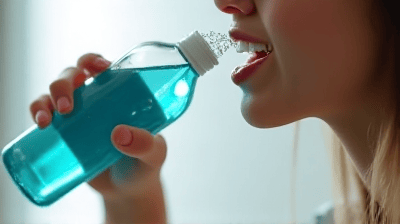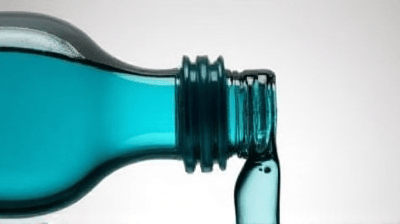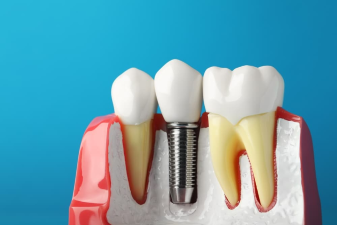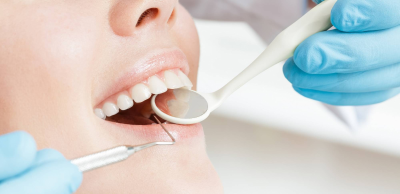Mouthwash is a popular oral hygiene product that many people use as part of their daily routine. It promises to freshen breath, kill bacteria, and promote oral health. However, like any other dental product, the use of mouthwash comes with its benefits and risks.

Understanding Mouthwash
What Is Mouthwash?
Mouthwash is a liquid product that is swished around in the mouth to cleanse and freshen the oral cavity. There are various types of mouthwash available on the market, each designed for specific purposes, including:
-
Cosmetic Mouthwash: Primarily used for breath freshening, cosmetic mouthwashes usually contain flavoring agents but do not provide significant therapeutic benefits.
-
Therapeutic Mouthwash: These contain active ingredients that provide specific benefits, such as reducing plaque, gingivitis, and bad breath. They may contain fluoride, antiseptic agents, or other beneficial compounds.
-
Prescription Mouthwash: These are recommended by dental professionals for specific conditions, such as severe dry mouth, gum disease, or after oral surgery.
How Mouthwash Works
Mouthwash typically contains active ingredients that target specific oral health issues. Here’s how it generally works:
-
Killing Bacteria: Many mouthwashes contain antiseptic or antimicrobial agents that help reduce the bacteria in the mouth, contributing to improved oral hygiene.
-
Plaque Control: Therapeutic mouthwashes may help reduce plaque accumulation and lower the risk of gingivitis.
-
Freshening Breath: Flavoring agents in mouthwash provide a burst of freshness, masking bad breath temporarily.
-
Fluoride Protection: Some mouthwashes contain fluoride, which can strengthen tooth enamel and help prevent cavities.
Benefits of Mouthwash
Using mouthwash can provide several distinct benefits that contribute to overall oral health. Here are some key advantages:
1. Freshens Breath
One of the most immediate benefits of mouthwash is its ability to freshen breath. Many mouthwashes have minty flavors that provide a quick solution to bad breath. This can be especially helpful after meals or when you need to feel confident in social situations.
2. Reduces Oral Bacteria
Therapeutic mouthwashes typically contain antiseptic agents like chlorhexidine, cetylpyridinium chloride, or essential oils, which can significantly reduce the number of harmful bacteria in the mouth. This reduction in bacteria helps decrease the risk of dental issues such as cavities and gum disease.
3. Helps Prevent Gum Disease
Regular use of mouthwash, particularly those with therapeutic ingredients, can reduce plaque buildup and gingivitis. This is crucial in preventing gum disease, which, if left untreated, can lead to more serious oral health issues.
4. Promotes Overall Oral Hygiene
Incorporating mouthwash into your oral care routine can enhance your overall oral hygiene practices. When used in combination with brushing and flossing, mouthwash can help remove food particles and bacteria that brushing alone may miss.
5. Fluoride Benefits
Mouthwashes that contain fluoride can provide additional protection against tooth decay. Fluoride helps remineralize the tooth enamel and strengthen it against acid attacks from bacteria and sugary foods.
6. Convenience
Mouthwash is a quick and easy addition to your oral hygiene routine. It requires no additional tools, takes just a minute to use, and is portable, making it an excellent option for on-the-go oral care.

Risks of Mouthwash
While mouthwash has many benefits, there are also some risks and considerations that users should be aware of:
1. Alcohol Content
Many mouthwashes contain alcohol, which can cause dryness in the mouth and irritation of the oral tissues. For individuals with sensitive mouths or conditions like xerostomia (dry mouth), alcohol-containing mouthwash may exacerbate symptoms. Some studies also suggest that excessive use of alcohol-based mouthwashes can lead to a higher risk of oral cancer, although more research is needed in this area.
2. Altered Taste Sensation
Frequent use of mouthwash, particularly those with strong flavors or high alcohol content, can temporarily alter your taste perception. This might affect your enjoyment of food and beverages.
3. Staining of Teeth
Some mouthwashes, especially those containing chlorhexidine, can lead to staining of teeth and tongue when used over extended periods. The staining can necessitate additional dental cleanings to remove.
4. Potential for Masking Issues
Relying solely on mouthwash may lead to a false sense of security regarding oral health. While mouthwash can combat bad breath, it does not replace the need for regular brushing, flossing, and professional dental care. If underlying problems such as periodontal disease exist, mouthwash may only mask symptoms without addressing the root cause.
5. Allergic Reactions
Some individuals may experience allergic reactions to specific ingredients in mouthwash. Signs of an allergic reaction can include burning sensations, swelling, or redness in the mouth, requiring immediate cessation of use and consultation with a dental professional.
Best Practices for Using Mouthwash
To maximize the benefits of mouthwash while minimizing potential risks, consider the following best practices:
1. Choose the Right Mouthwash
Select a mouthwash that meets your specific needs. If your primary goal is breath freshening, a cosmetic mouthwash may suffice. If you're looking for therapeutic benefits, choose a product with active ingredients that address your concerns, such as fluoride for cavity prevention or chlorhexidine for managing gum disease.
2. Follow Directions
Always read and follow the manufacturer's instructions regarding usage. This includes recommended dilution, duration of swishing, and whether to rinse afterward. Overuse or improper use can negate the benefits and cause unwanted side effects.
3. Timing Matters
Use mouthwash at the proper time in your oral hygiene routine. It is generally best to use it after brushing and flossing to ensure that it can reach all areas of the mouth. However, keep in mind that using mouthwash immediately after brushing, especially fluoride toothpaste, may wash away the beneficial fluoride coating on your teeth.
4. Limit Alcohol-Containing Mouthwash
If you have a history of dry mouth, sensitive gums, or other oral issues, consider opting for an alcohol-free mouthwash. Many effective formulations exist that do not include alcohol yet still offer antibacterial and breath-freshening properties.
5. Be Aware of Staining Risks
If using a mouthwash that may cause staining, be mindful of the frequency of use. Regular dental check-ups can help manage any staining issues that may arise.
6. Listen to Your Body
If you experience any adverse effects after using mouthwash, such as irritation, burning, or allergic reactions, discontinue use and consult with your dental professional.
7. Incorporate Comprehensive Oral Care
Mouthwash cannot replace fundamental oral hygiene practices. Always brush your teeth twice a day, floss daily, and see your dentist for regular check-ups. Using mouthwash should supplement these practices for optimal oral health.
Special Considerations
Mouthwash for Children
Using mouthwash for children requires careful consideration. Here are some tips:
-
Age Appropriateness: Most dental professionals recommend that children only begin using mouthwash around age six or older, once they have developed the ability to rinse and spit without swallowing.
-
Fluoride Content: Ensure that any mouthwash for children contains an appropriate level of fluoride. Supervise its use to avoid swallowing excessive amounts of fluoride, which can lead to fluorosis.
-
Flavor and Appeal: Choose a mouthwash with flavors that appeal to children to encourage regular use and good hygiene habits.
Mouthwash for Seniors
Seniors may face unique dental challenges, such as dry mouth, periodontal disease, and medication side effects. Consider the following:
-
Sensitivity: Seniors may have more sensitive oral tissues, so selecting a gentle, alcohol-free mouthwash can be beneficial.
-
Dry Mouth Solutions: For seniors experiencing dry mouth due to medications or health conditions, specific mouthwashes are formulated to help retain moisture.
-
Consultation: Bring up mouthwash use during dental visits to ensure that it complements other aspects of their oral care.
Conclusion
Mouthwash can be an effective addition to your oral hygiene routine, offering benefits such as fresh breath, reduced bacteria, and protection against dental issues. However, it is essential to understand the potential risks associated with its use and to follow best practices to ensure safe and effective application.
By choosing the right mouthwash and incorporating it into a comprehensive dental care routine that includes regular brushing, flossing, and dental visits, you can promote optimal oral health for yourself and your family. Always listen to your body and consult healthcare professionals if you have questions or concerns about using mouthwash.



